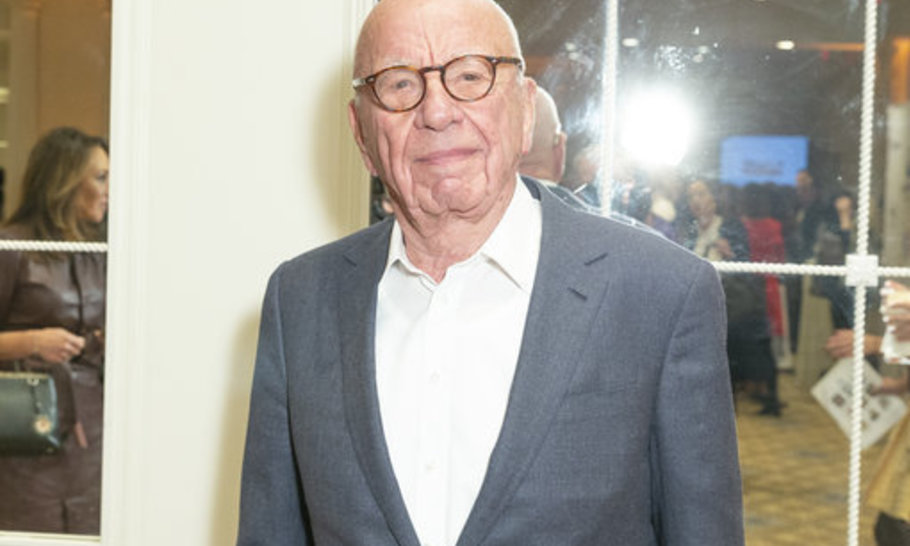Times Radio: Rupert Murdoch's tanks are on the BBC's lawn

Rupert Murdoch 2019 (© Lev Radin/Pacific Press via ZUMA Wire)
This week, News UK confirmed the long-running rumours that its flagship newspaper, the Times, is to have its own radio station. While in years gone by the idea of Britain’s paper of record hitting the airwaves would have seemed preposterous, it seems less so now.
Its parent company already owns talkRADIO and talkSPORT alongside its high-profile print titles, including the Sun. The Times already sponsors Julia Hartley-Brewer’s breakfast show on talkRADIO. Furthermore, company patriarch Rupert Murdoch has always operated across various mediums in all the markets where he has a presence — think Fox News and the Wall Street Journal in the US.
The creation of the Times Radio only further underlines then that all outlets are multimedia outlets now. The newspapers’ editor John Witherow emphasised this point when, as the radio station’s launch was announced, he said that “Times Radio, infused with our world-class journalism, will be the perfect complement to our print and online offer.”
Additionally, the Times is going to launch a new podcast, called “Stories of Our Times”. It will be presented by Manveen Rana, and land at 6am daily, delving into key bits of the Times’s journalism. The project is clearly aimed at emulating the success of the New York Times’s “The Daily Podcast”, and only further underlines that the link between the newspaper and the new outlet goes far beyond the superficial sharing a name. The Guardian does something similar too, presented by Anushka Asthana.
Being a multimedia outlet doesn’t mean just putting a few kitschy videos on Facebook or Twitter so you can say you’re “in video”. It doesn’t necessarily mean you make some of your reporters do a podcast or two. It means fundamentally rethinking how your news organisation presents information. Not every media organisation will have the capacity to launch a radio station — News UK owns the Wireless group, so the expertise was there already. But the principle applies at all levels.
Consequently, it has been obvious for a number of years that individual journalists must be multi-skilled and be able to work across a whole range of mediums. You not only need to be able to write, but have some understanding of how to record and edit audio and video content, and of course have a strong grasp of social media — any speaker at any gathering of eager young hacks will tell them that, and journalism courses increasingly reflect that. (At this point, I’m going to resist reigniting the debate about the need to learn shorthand, which erupted on journalism twitter a couple of weeks ago.)
Up and coming journalists need that range because the differentiation between “print” and “broadcast” journalist is increasingly redundant. Sky News correspondents write blogs, editors and columnists on the Telegraph feature in videos or host podcasts.
News UK also confirmed that talkRADIO would remain, despite the company seemingly launching a competitor. When the rumours of a Times-branded radio station emerged, I actually assumed that talkRADIO would just change its name and that there might be some new presenters, but no, it’s a whole new station. This is probably a good idea — it means the new station can start from scratch and it keeps talkRADIO as the more “tabloid” offering.
Rupert Murdoch isn’t creating a competitor to one of his own products though. He’s far too canny for that. Instead, he is parking his tanks right on the BBC’s lawn. As Radio 4 flagship, the Today programme, loses listeners and begins the search for a new editor after Sarah Sands revealed that she will be stepping down in September, and as Radio 5Live also faces cuts, Times Radio will be competing for that same audience. It won’t even have adverts.
While the Times is moving into radio, across the Atlantic, Ben Smith revealed this week he is leaving his role as editor in chief of Buzzfeed News in order to become the New York Times’s media columnist. While he’d previously been a newspaper journalist, Smith moved online and came to lead the outlet most associated with the digital media revolution. He is now headed to one of the world’s most august print titles. Perhaps the Times (of London), like Smith, will find that switching medium comes rather naturally.





